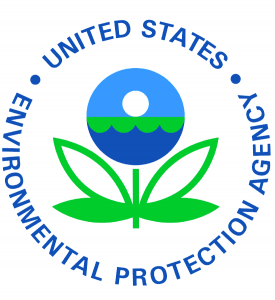 On July 2, 2019, the U.S. Court of Appeals for the District of Columbia Circuit decided the case of California Communities Against Toxics, et al. v. EPA. In this decision, the court rejected the latest petition to strike or vacate EPA’s 2018 revisions to the Resource Conservation and Recovery Act (RCRA) hazardous waste recycling rules. In 1985, EPA promulgated a new regulatory definition of “solid waste,” which is the linchpin of the agency’s very stringent hazardous waste management rules. (See the rules located at 40 CFR Sections 260-268.) Unless a material is a “solid waste” as defined by the rules, it cannot also be a hazardous waste.
On July 2, 2019, the U.S. Court of Appeals for the District of Columbia Circuit decided the case of California Communities Against Toxics, et al. v. EPA. In this decision, the court rejected the latest petition to strike or vacate EPA’s 2018 revisions to the Resource Conservation and Recovery Act (RCRA) hazardous waste recycling rules. In 1985, EPA promulgated a new regulatory definition of “solid waste,” which is the linchpin of the agency’s very stringent hazardous waste management rules. (See the rules located at 40 CFR Sections 260-268.) Unless a material is a “solid waste” as defined by the rules, it cannot also be a hazardous waste.
The 1985 rules grappled with the challenges posed by recycling practices, and attempted to distinguish between legitimate recycling which is not subject to hazardous waste regulation, and other more suspect forms of recycling. The rules are complex and replete with nuance. In doing so, EPA was adhering to RCRA’s statutory mandate that it develop appropriate rules to govern the treatment, storage and disposal of hazardous waste, while also promoting “properly conducted recycling and reuse.” The DC Circuit reviewed the 1985 rules in the seminal case of American Mining Congress v EPA, 824 F.2d 1177 (1987), (AMC) and stressed that only those materials that were truly discarded could be regulated as solid waste; for instance, those materials that were destined for immediate recycling or recovery in an ongoing production process were not discarded and hence were not solid waste. Over the years, the court has struggled to clarify the basic holding of AMC in numerous cases while EPA has frequently revised and amended the RCRA rules, and in particular the definition of solid waste, in an attempt to balance the policies mandated by the statute.
A major revision to these rules was promulgated in 2008 to encourage legitimate recycling practices, and these rules were themselves revised in 2015 and 2018. The California Communities case involves a new exclusion to the regulation defining what is a solid waste, the “transfer-based exclusion,” which would enhance the ability of third parties to recycle “spent refinery catalysts.” In a unanimous opinion, the court upheld the rule, concluding that EPA’s promulgation of this rules was accompanied by a reasoned explanation, and was not arbitrary and capricious. In doing so, the court may have finally completed the process, which began in 1987, of ensuring that EPA’s rules defining solid waste and the appropriate recycling rules adhere to the letter and the spirit of the statute
 Gravel2Gavel Construction & Real Estate Law Blog
Gravel2Gavel Construction & Real Estate Law Blog


